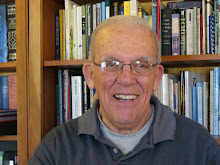 THIS WEEK
THIS WEEKLast week we introduced God Rocks. I think we will continue with them for a while...I do not know about anyone else, but I like it.
I hope you listen to the sermon for the 1th Sunday, very well done. The Jesus Heals video may be good for children in the house.
Finally, in Sept. I hope to be putting my sermons on the blog. This is indeed a work in progress....
EIGHTEENTH WEEK OF THE YEAR
MONDAY OF THE EIGHTEENTH WEEK OF THE YEAR
(Matt.14:13-21) Generosity is such a marvelous thing. Some great things happen because people are willing to go that extra step. What would have happened if they were unwilling to give up the loaves and fishes? Perhaps a couple of thousand people would have gone hungry. We are called many times to give the “loaves and fishes” which we have. Usually it is not money.We peg generosity to money too easily. How about time? How about listening? How about letting someone else into our life? Perhaps someone is waiting to be fed; we have to make sure they do not go away hungry.
TUESDAY OF THE EIGHTEENTH WEEK OF THE YEAR (Matt.14:22-36) Faith by its very nature is bold; it goes into the unknown and at the same time is vulnerable. Peter teaches us all of this If he did not believe, he would never have asked to be able to walk on the water. If he did not believe, he would not even have had the courage to do something so foolhardy. His faith was weak. This paradigm reminds us of our faith journey. We should not to be held back by the weakness of our faith. Faith without boldness to go beyond the safe and predictable is not faith. There comes a place where we are all called to walk into the unknown.
WEDNESDAY OF THE EIGHTEENTH WEEK OF THE YEAR (Matt.15:21-28) Here is another example of bold faith. Because she believed the healing of her daughter would take place, Jesus changed his mind. The woman’s faith got the best of Him. Jesus in a way is teaching us that faith does do things that we are even afraid to say. How many would have the boldness to say that they changed Jesus’ mind. Of course, that was due to His human nature. Now that nature is completely glorified,be so changing His mind would be quite impossible. However, the boldness of faith puts us very clearly into the Divine Plan. Through faith we are active participants in the God-history of the human race.
THURSDAY OF THE EIGHTEENTH WEEK OF THE YEAR (Matt.16:13-23) Who do you say the Son of Man is? A question all who believe must ask themselves. The answer can not be only theological. I may give the perfectly correct theological answer without ever answering the question. I think when Peter answered he was answering from his own faith experience of the Lord. When we answer, it should be from our own lived experience of the Lord. He is the Son of Man, He is the Lord, He is our Redeemer, the first born of all creation; but these stand the danger of being abstract without ever coming to that point of having met the Lord. When did I walk with you? When was I your friend? When did I take a burden from your shoulders? When did I smile with you, be happy with you?
FRIDAY OF THE EIGHTEENTH WEEK OF THE YEAR (Matt.16:24-28) The command of Christ to take up our cross is a condition of being His follower. What does it mean? Does it mean that our faith is an exercise in suffering? Does it mean when we are happy we are less His followers? What was the cross to the Lord? He was obedient to the Father and therefore to the Cross. The Cross is a sign of obedience. We take up our cross everyday by living our life of faith. The command of Christ is so strong that it must go beyond just those times of physical and emotional suffering. What happens to all the good days? Do we just wait for the Cross to come or can we take those good days and, by accepting them in faith, make them our Cross. It is the only thing we have.
SATURDAY OF THE EIGHTEENTH WEEK OF THE YEAR (Matt.17:14-20) Jesus once again uses an unbelievable example, moving mountains, to point out the believable. I can not recall ever reading about a mountain moving. However, I do recall many times when the mountains of pain, suffering, were moved by trust. The Lord is telling us that faith is much more than simply intellectual assent. It is the loving trust a child has. It seems that this is really the only thing the Lord demands of those who would follow Him, unconditional trust. It is almost a plea, “trust me.” It is a plea, to break through all the other “trusts” we have in life, and to make Him the center.




